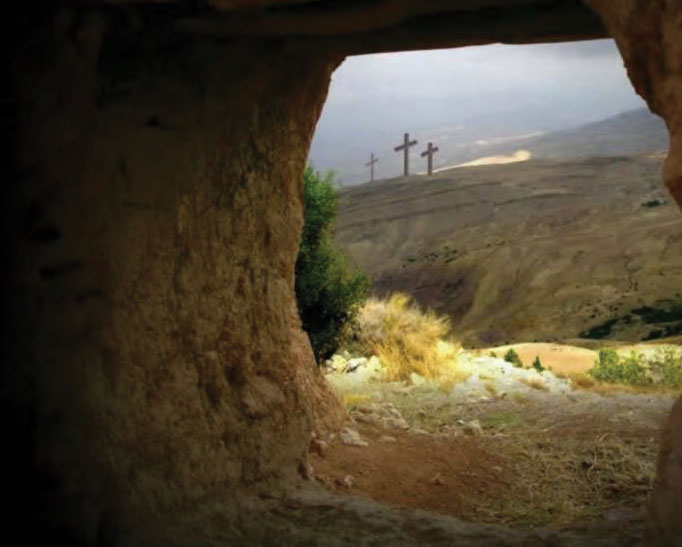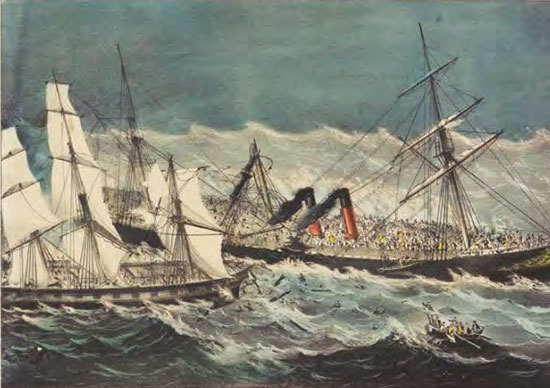 Important questions face us daily. “Why me? Why this? Why now?” Answers are difficult to find. Reasons are hard to discover. Solutions seem wrapped in secrecy. But more than these there is a unique and powerful question that covers a vaster scope of life. It is the dramatic two-word statement, “What Then?” Issues rise and fall. Circumstances revolve around a sphere greater than earth. We can’t believe what we see in the mirror and are challenged to amazement and at times even bewilderment. I think this question is best illustrated in the words of J. W. Green.
Important questions face us daily. “Why me? Why this? Why now?” Answers are difficult to find. Reasons are hard to discover. Solutions seem wrapped in secrecy. But more than these there is a unique and powerful question that covers a vaster scope of life. It is the dramatic two-word statement, “What Then?” Issues rise and fall. Circumstances revolve around a sphere greater than earth. We can’t believe what we see in the mirror and are challenged to amazement and at times even bewilderment. I think this question is best illustrated in the words of J. W. Green.
When the great, busy plants of our cities shall have turned out their last finished work, When the merchants have sold their last order and dismissed every last tired clerk, When our banks have raked in their last dollar and have paid their last dividend, When the Judge of the earth wants a hearing and asks for a balance—
WHAT THEN?
When the choir has sung its last anthem and the preacher has voiced his last prayer, And the people have heard their last sermon and the sound has died out in the air, When the Bible lies closed on the altar and the pews are all empty of men, When each one stands facing his record, And the Great Book is opened—
WHAT THEN?
When the actors have played their last drama, and the mimic has made his last fun, When the movie has finished its last picture and the billboard displayed its last run, When the crowd seeking pleasure has vanished and gone out in the darkness again, And the trumpet of the ages has sounded and we stand before Him—
WHAT THEN?
When the bugle call sinks into silence and the long marching columns stand still. When the captain repeats his last orders and they’ve captured the last fort and
hill, When the flag has been hauled from the masthead, All the wounded afield have checked in, And the world that rejected its Savior is asked for a reason—
WHAT THEN?
Time runs out. Events finally finish. Plans, at last, are completed. It’s all over. “What Then?”
Are we ready for the curtain to come down? Are we prepared when the music stops? What will we do when our last breath is taken? These are things we cannot avoid! These steps each of us must take!
Proverbs 27:1 declares, “Do not boast about tomorrow, for you do not know what a day may bring forth.” In James 4:13-15 we read, “Come now, you who say, ‘Today or tomorrow we will go to such and such a city, spend a year there, buy and sell, and make a profit’; whereas you do not know what will happen tomorrow. For what is your life? It is even a vapor that appears for a little time and then vanishes away. Instead, you ought to say, ‘If the Lord wills, we shall live and do this or that.’”
Moses declared long ago, “I call heaven and earth as witnesses against you, that I have set before you life and death, blessing and cursing; therefore choose life, that both you and your descendants may live.” (Deuteronomy 30:19)
It’s been said, “We cannot go back and make a new start, but we can start now to make a new ending.”
We can prepare for our “What Then?” this very moment. Are we ready?
Till next time, Don Johnson, KP Chaplain

 The events that capture our thoughts at this season often prompt us to remember history past. We focus on the Person and the places that dramatically changed the world. We wonder what it was that caused people 20 Centuries ago to be so committed in the early days of Christianity. The depth of commitment of the early Chris- tian leaders is remarkable beyond our understanding. Consider the following:
The events that capture our thoughts at this season often prompt us to remember history past. We focus on the Person and the places that dramatically changed the world. We wonder what it was that caused people 20 Centuries ago to be so committed in the early days of Christianity. The depth of commitment of the early Chris- tian leaders is remarkable beyond our understanding. Consider the following: We continue to stagger from unexpected tragedies like the Valentine’s Day Florida high school murder of students, teachers and coaches. Another sad reminder of how unstable life can be, another addition to similar events before that found us unprepared. What great grief was felt by the parents who sent their children to school never imagining it would be the last time they would see them alive. Dreams shattered…hopes smashed…the future stolen. Each family walked through its own set of bewildered unbelief at what had taken place. Each one dealt with the sorrow in personal responses that only they could embrace.
We continue to stagger from unexpected tragedies like the Valentine’s Day Florida high school murder of students, teachers and coaches. Another sad reminder of how unstable life can be, another addition to similar events before that found us unprepared. What great grief was felt by the parents who sent their children to school never imagining it would be the last time they would see them alive. Dreams shattered…hopes smashed…the future stolen. Each family walked through its own set of bewildered unbelief at what had taken place. Each one dealt with the sorrow in personal responses that only they could embrace.

 © 2024 Kirby Pines LifeCare Community. All Rights Reserved |
© 2024 Kirby Pines LifeCare Community. All Rights Reserved | 